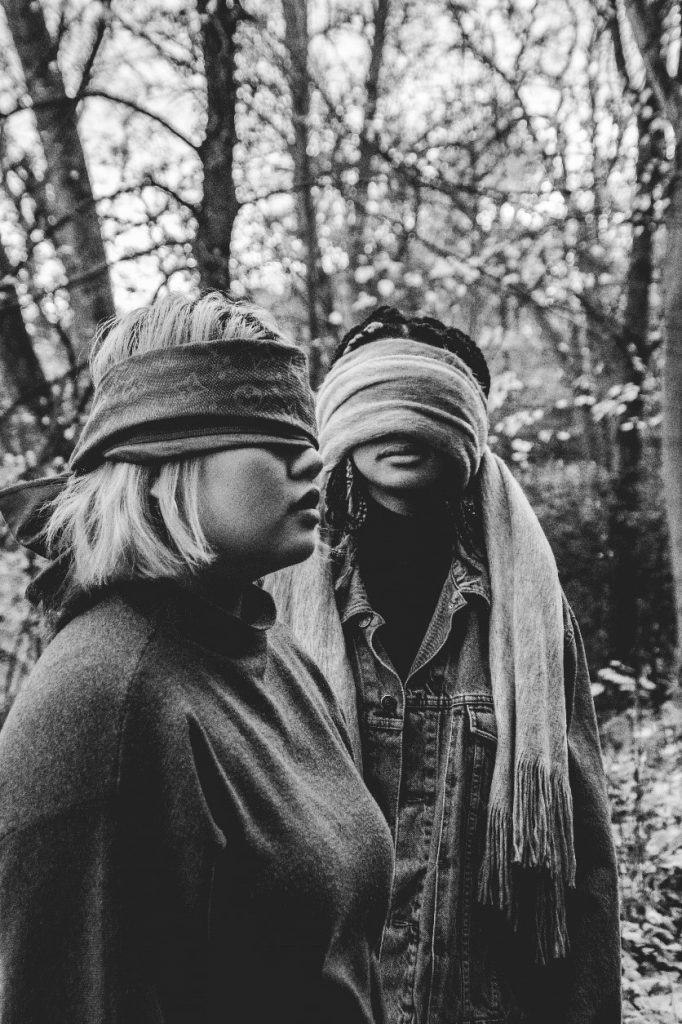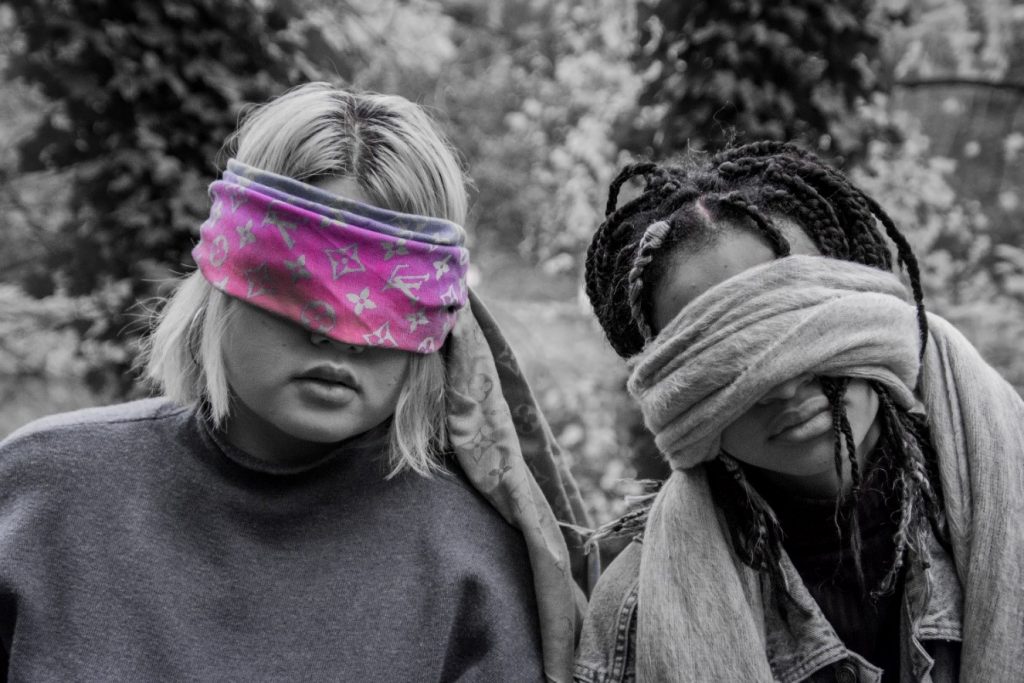Confronting the realities of racial injustice during the colour-blindness epidemic – why blinding yourself to race makes you an accomplice.
In a recent episode of “The Pledge,” panelist Michelle Dewberry voiced her grievances with the contemporary dialogue surrounding racism in British society. “Where I struggle… is that I feel I am constantly having stuff pushed on to me that makes me consider racism in places that I never even saw it,” are the words used to express her discomfort. She went on to claim, “I don’t see colour in people.” However, this self-proclaimed anti-racist narrative does nothing to resolve racial discrimination. Instead, it perpetuates a “post-racial” fallacy that attempts to conceal the very real historic and structural privileging of whiteness in 21st century Britain.
Ijema Oluo, in So You Want to Talk About Race, made a particularly poignant argument when she declared that “when we identify where our privilege intersects with somebody else’s oppression, we’ll find opportunities to make real change.” Shunning the discussion on race actively fails to acknowledge the racial disparities that permeate in everyday social life and that manifest themselves in the experiences of BME people. Choosing to not “see” race at best produces a sense of denial and embodies a blissful ignorance. At worst, it cruelly silences those who are subject to racism, whether overtly or indirectly, and suggests that racism is no longer a prevalent issue worthy of discussion. Whilst it is said that “colour-blindness” is somewhat admirable – a declaration of equality by descendants of the historic oppressor – I argue, blindness is nothing but a feeble attempt to shut down the dialogue on race.
Colour blindness represents the idea that race is no longer an issue. It suggests that a self-proclaimed “colour-blind” individual can by logic not share racist views. It seems to be a label of acceptance, a supportive hand placed on the shoulder of a person of colour to assure them they are not seen as different by their white counterpart. In this way, failure to acknowledge race in people of colour sets whiteness as the default, where because race is no longer visible, issues surrounding race suddenly disappear. By announcing “colour-blindness” one engages (whether knowingly or not) in the attempted erasure of the historic and ever-persistent violence, exclusion, structural discrimination and daily discrimination that people of colour are subject to.
Here, an interesting parallel can be made. Reni Eddo lodge, in her book Why I’m No Longer Talking to White People About Race argues it is exactly the absence of the racial targeting of white people that epitomises the concept of white privilege. Thus, individuals who claim to be “colour-blind” also are often in denial of white privilege. Confessing to not seeing race doesn’t resolve the issues of individual and systemic acts of racial discrimination, neither does it rebalance the structurally enforced favouring of whiteness in Western society. Instead, “colour-blindness” exudes an ignorance that propels such inequality and that suggests non-white is taboo, dirty or something to shun.
Often heard in such debate is that racism in Britain is no longer an issue, that we have reached an era of racial equality in most facets of society. However, a report from Bristol University in 2014 revealed that Muslim men were 76% less likely to obtain a job at any level, compared to their white British counterpart of the same age and holding equivalent qualifications. Figures published in 2015 also revealed that black people are up to 17.5x more likely than white people to be stopped and searched by the police in particular regions of the UK. In the same year, a report from The Joseph Rowntree Foundation showed that that the ethnic group least likely to be paid below the minimum wage was white males at 15.7%, compared to 57.2% of Bangladeshi males. The data exposing structural racism and white privilege from all facets of society, whether healthcare, housing, employment, education or the judicial system is endless.
More visible racial discrimination is also rife. Being called the ‘N’ word by a group of passing youth on a student night out or being met by the ‘P’ word as you walk out of your local library, only touch upon the verbal and physical abuse encountered by people of colour in their everyday lives. In this way, by disregarding race and professing to not registering the colour of one’s skin, a suggestion is made that the disadvantages facing people of colour are fictitious. This is simply not the case. Although you may not ‘see’ racism overtly, that doesn’t justify its depiction as a fallacy.
Whilst declaring “colour-blindness” may be well-intentioned, an act in which an individual is distancing themselves from the well-documented racism that plagues British colonial history, not seeing colour does nothing to address racial injustice in the contemporary moment. I argue that not seeing race, as confessed by Michelle Dewberry, is the equivalent to turning a blind eye on the injustices facing BME people and dismissing an undoubtable reality. The “struggle” she describes of having issues of race constantly put forward to her, only epitomises her very white privilege. It goes without saying that if you don’t see colour, you’re not looking hard enough.



You are so awesome! I don’t suppose I’ve read anything like that before.
So good to find someone with some original thoughts on this subject matter.
Seriously.. many thannks for starting this up.
This web ssite is one thing that’s needed on the internet,
someone with a bit of originality!